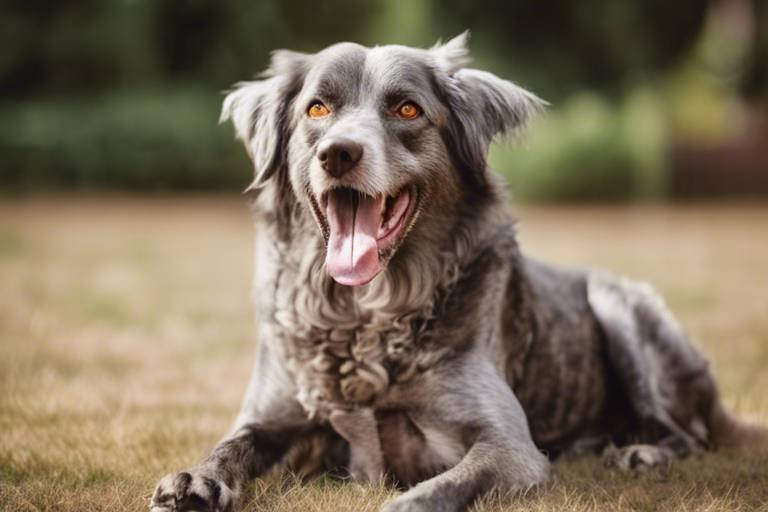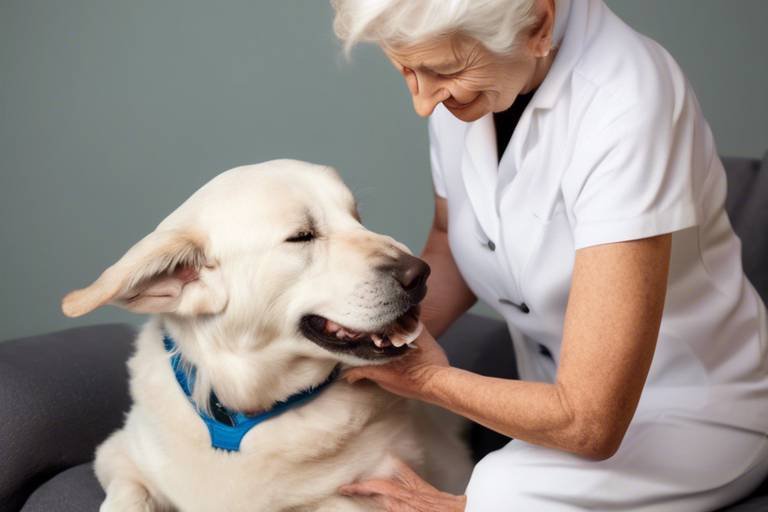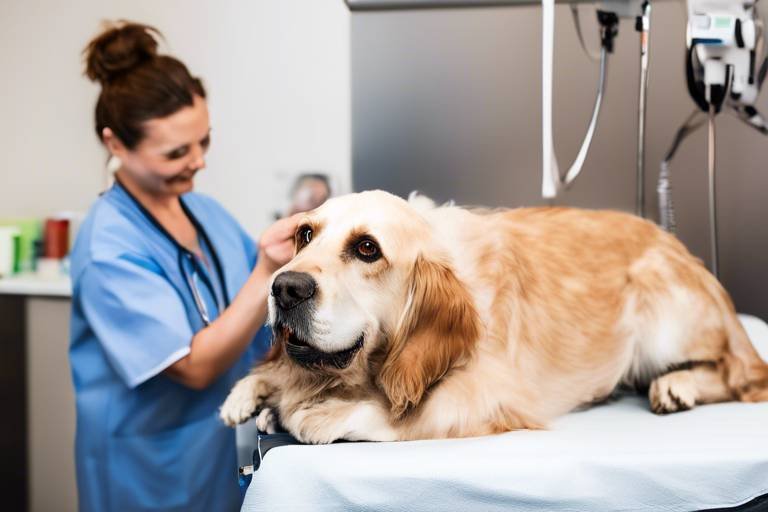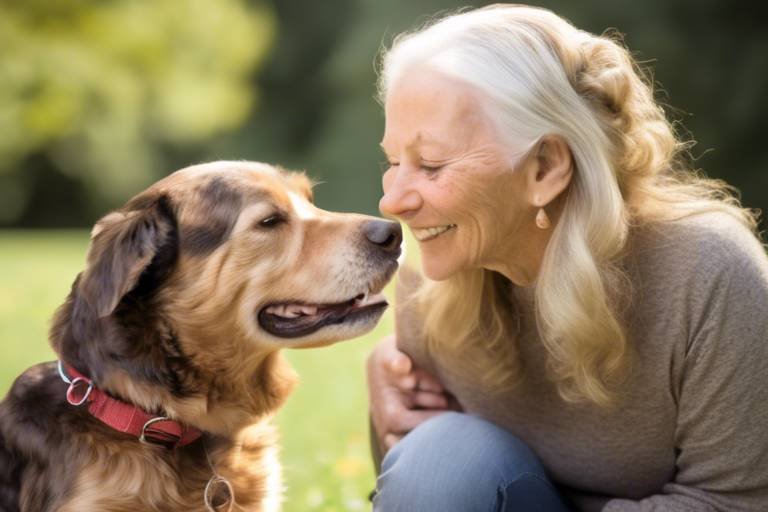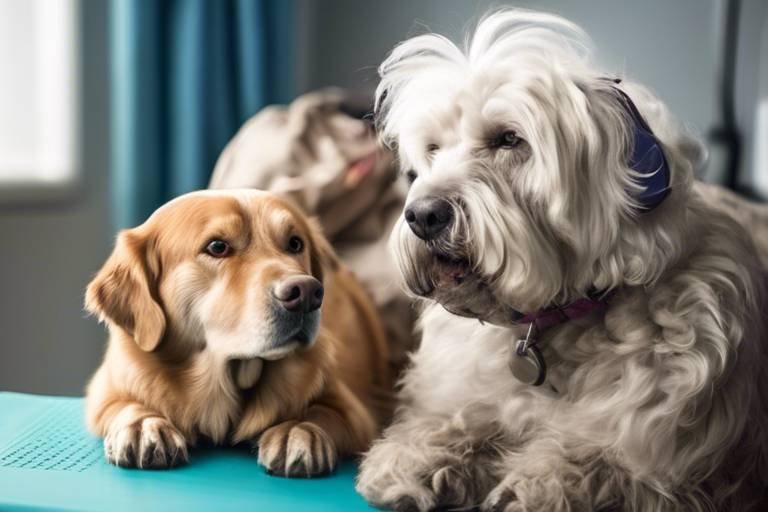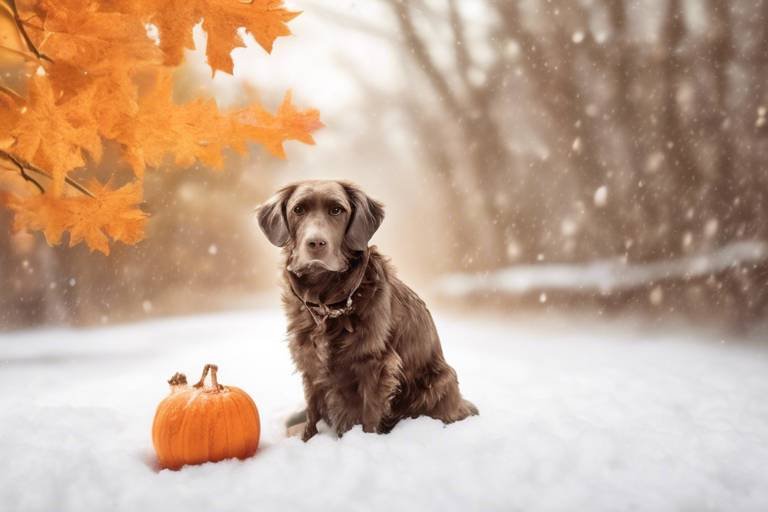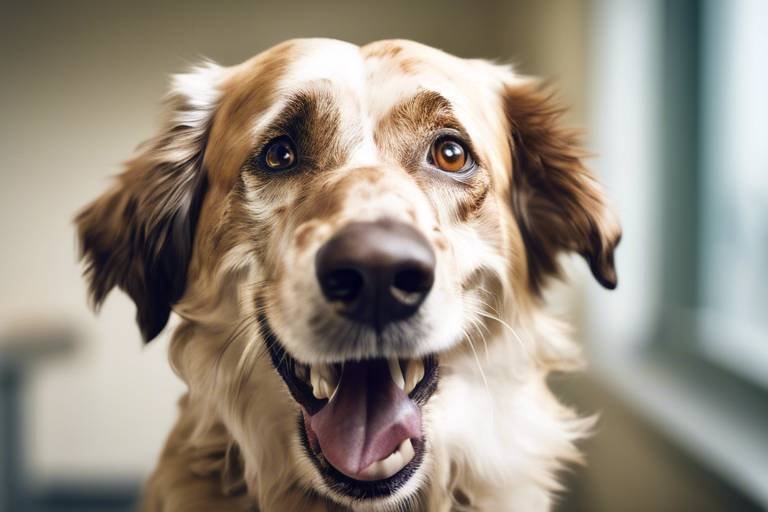How to Handle Anxiety in Senior Dogs
As our furry friends age, they may face a plethora of changes, both physically and emotionally. One of the most challenging issues that can arise is anxiety. Just like us, senior dogs can experience feelings of unease, fear, or stress, which can manifest in various ways. This article explores effective strategies for managing anxiety in senior dogs, offering insights into symptoms, causes, and practical solutions to ensure their comfort and well-being. Understanding how to navigate this journey with your pet can make a significant difference in their quality of life.
Recognizing the signs of anxiety in senior dogs is crucial. These signs can be subtle or quite pronounced, and understanding them can be the first step in providing your dog with the support they need. Common symptoms include:
- Excessive barking or whining: If your dog seems more vocal than usual, it may be a sign of distress.
- Avoidance behaviors: Dogs may hide or retreat to a safe space when feeling anxious.
- Destructive behavior: Chewing or scratching at furniture can indicate anxiety, especially if it’s a new behavior.
- Changes in appetite: A sudden loss of interest in food or treats can be a red flag.
- Pacing or restlessness: An anxious dog may have difficulty settling down.
By being vigilant and observant, you can identify these signs early and take action to help your furry companion feel more at ease.
Anxiety in senior dogs can stem from various factors. As dogs age, they may face health issues, changes in routine, and environmental stressors that can all contribute to anxiety. Some typical triggers include:
- Health problems: Chronic pain, cognitive dysfunction, or sensory decline can cause anxiety.
- Changes in routine: Moving to a new home or changes in family dynamics can unsettle your dog.
- Environmental stressors: Loud noises, new pets, or unfamiliar visitors can create a sense of unease.
Understanding these causes can help you provide the necessary support and adjustments to alleviate your dog’s anxiety.
It’s essential to recognize that untreated anxiety can lead to various health problems in senior dogs. Chronic anxiety can cause a decline in physical health, leading to issues such as:
- Digestive problems: Stress can affect a dog’s appetite and digestion, leading to weight loss or gastrointestinal issues.
- Weakened immune system: Prolonged anxiety can compromise a dog's ability to fight off illness.
- Behavioral issues: Anxiety can lead to fear-based aggression or other behavioral problems.
Addressing anxiety promptly is vital to maintaining your dog's overall health and well-being.
Implementing behavioral modifications can significantly reduce anxiety levels in senior dogs. Techniques such as desensitization and counter-conditioning can help dogs cope with their fears. Desensitization involves gradually exposing your dog to the source of their anxiety in a controlled manner, allowing them to acclimate without becoming overwhelmed. Counter-conditioning can change your dog's emotional response to a trigger by associating it with something positive, like treats or praise.
A secure environment plays a vital role in alleviating anxiety. Here are some tips to create a calming space for your senior dog:
- Familiar items: Surround your dog with their favorite toys and blankets to provide comfort.
- Soothing sounds: Consider playing soft music or white noise to mask disruptive sounds from the environment.
- Safe spaces: Create a designated area where your dog can retreat when feeling anxious.
By making these adjustments, you can help your dog feel more secure in their surroundings.
Natural remedies can complement behavioral strategies. Various supplements and holistic approaches may help reduce anxiety in senior dogs. Some options include:
- Herbs: Herbs like chamomile and valerian root have calming properties.
- Calming pheromones: Products that mimic natural dog pheromones can create a sense of security.
Always consult your veterinarian before introducing any new supplements to ensure they are safe for your dog.
Sometimes, professional intervention is necessary to effectively manage anxiety. If your dog's anxiety is severe or persistent, it may be time to seek help from veterinarians or certified trainers. They can provide tailored strategies and, if needed, medication to help your dog cope. Understanding that seeking help is a sign of responsible pet ownership is crucial for your dog’s well-being.
Regularly monitoring your dog's anxiety levels is essential for effective management. Keep a journal to track your dog's behavior, noting any changes or improvements. This will help you assess progress and make necessary adjustments to your approach for optimal results. Remember, patience and consistency are key when helping your senior dog navigate their anxiety.
Q: How can I tell if my dog is anxious?
A: Look for signs like excessive barking, hiding, destructive behaviors, changes in appetite, or restlessness.
Q: Are there specific breeds more prone to anxiety?
A: While any dog can experience anxiety, certain breeds may be more susceptible due to their temperament.
Q: Can medication help my anxious dog?
A: Yes, in some cases, veterinarians may prescribe medication to help manage anxiety effectively.
Q: How long does it take to see improvements?
A: Every dog is different, but with consistent effort, you may start noticing improvements within a few weeks.

Understanding Canine Anxiety
This article explores effective strategies for managing anxiety in senior dogs, offering insights into symptoms, causes, and practical solutions to ensure their comfort and well-being.
Recognizing the signs of anxiety in senior dogs is crucial for their well-being. Much like humans, our furry companions can experience a range of emotions, and anxiety can manifest in various ways. Have you ever noticed your dog pacing back and forth, or perhaps they seem unusually clingy? These behaviors can be indicative of anxiety. It's essential to be aware of the common symptoms that may arise, as they can vary significantly from one dog to another.
Some typical signs of anxiety in senior dogs include:
- Excessive barking or whining: This can often be a cry for help, signaling that your dog is feeling overwhelmed.
- Destructive behaviors: Chewing on furniture or digging can indicate that your dog is trying to cope with their stress.
- Avoidance or withdrawal: If your dog is hiding or seems less interested in activities they once enjoyed, it might be a sign of anxiety.
- Changes in appetite: Eating less or refusing treats can also be a red flag.
- Restlessness: A senior dog that can't seem to settle down may be struggling with anxiety.
As you observe your dog's behavior, it’s helpful to note any patterns or triggers that seem to exacerbate their anxiety. For instance, do they become more anxious during thunderstorms or when there are changes in the household, such as a new pet or family member? By identifying these triggers, you can better understand your dog's emotional state and provide the necessary support.
Additionally, it’s important to understand that anxiety in dogs isn’t just a phase; it can be a chronic issue that affects their quality of life. Imagine feeling constantly on edge without a clear reason—this is what our dogs may experience. As pet owners, we play a vital role in helping them navigate their fears and anxieties. By being observant and responsive, we can create a nurturing environment that promotes calmness and security.
In summary, understanding canine anxiety is the first step in providing effective support for your senior dog. By recognizing the signs and being aware of their emotional triggers, you can take proactive measures to help alleviate their anxiety and improve their overall quality of life. Remember, a happy dog is a healthy dog, and your efforts can make a significant difference in their well-being.
Anxiety in senior dogs can stem from various factors. Here, we examine typical triggers such as health issues, changes in routine, and environmental stressors that may affect older dogs.
Anxiety can lead to various health problems in senior dogs. This section discusses the physical and emotional consequences of untreated anxiety, emphasizing the importance of addressing these issues promptly.
Implementing behavioral modifications can significantly reduce anxiety levels. In this part, we explore techniques such as desensitization and counter-conditioning to help dogs cope with their fears.
A secure environment plays a vital role in alleviating anxiety. This section offers tips on how to create a calming space for senior dogs, including the use of familiar items and soothing sounds.
Natural remedies can complement behavioral strategies. Here, we discuss various supplements and holistic approaches that may help reduce anxiety in senior dogs, including herbs and calming pheromones.
Sometimes, professional intervention is necessary. This section highlights when to seek help from veterinarians or certified trainers and what to expect during the process of managing canine anxiety.
Regularly monitoring your dog's anxiety levels is essential for effective management. This final section outlines how to assess progress and make necessary adjustments to your approach for optimal results.
Q: How can I tell if my senior dog is anxious?
A: Look for signs such as excessive barking, destructive behavior, withdrawal, or changes in appetite. If your dog exhibits any of these behaviors, it may indicate anxiety.
Q: Are there specific triggers for anxiety in senior dogs?
A: Yes, common triggers include health issues, changes in routine, loud noises, and new environments. Understanding these triggers can help you manage your dog's anxiety more effectively.
Q: What can I do to help my anxious dog?
A: Creating a safe environment, implementing behavioral modifications, and considering natural remedies can all be effective strategies. In some cases, consulting a veterinarian or a professional trainer may be necessary.
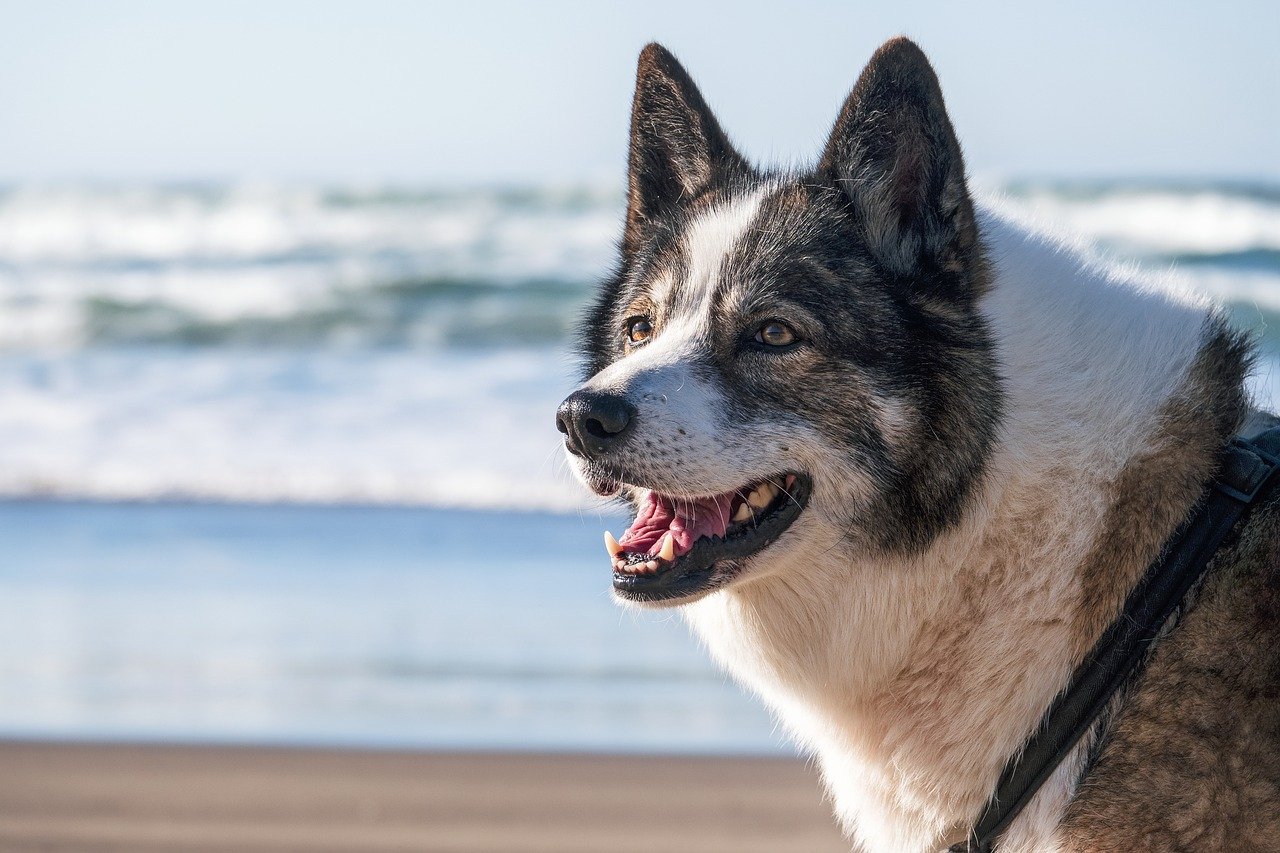
Common Causes of Anxiety
Understanding the common causes of anxiety in senior dogs is essential for any pet owner who wants to ensure their furry friend is comfortable and happy. Just like humans, dogs can experience anxiety due to a variety of factors, and recognizing these triggers can make a world of difference in their well-being. One of the primary causes of anxiety in older dogs is health issues. As dogs age, they may develop chronic conditions such as arthritis, cognitive dysfunction, or vision and hearing loss. These health problems can create discomfort and confusion, leading to increased anxiety levels.
Another significant factor contributing to anxiety in senior dogs is changes in their daily routine. Dogs are creatures of habit, and any disruption—be it a new family member, a move to a new home, or even a change in the owner's schedule—can throw them off balance. Imagine how unsettling it must be for them when their familiar world shifts! Environmental stressors, such as loud noises from thunderstorms or fireworks, can also trigger anxiety. For a senior dog, these noises might be more frightening than they were in their younger days, making it crucial for owners to be aware of their pet's reactions.
Additionally, social interactions can play a role in a senior dog's anxiety. As dogs age, they may become less tolerant of other pets or unfamiliar people, leading to increased stress during encounters. It's essential to monitor how your dog interacts with others and to provide a safe space when needed. In some cases, the loss of a companion—be it a human or another pet—can create feelings of loneliness and anxiety as well. The emotional toll of such losses can be profound, leaving a void that your dog may struggle to fill.
To summarize, the common causes of anxiety in senior dogs can be categorized as follows:
- Health Issues: Chronic conditions, pain, or cognitive decline.
- Changes in Routine: New family members, relocation, or altered schedules.
- Environmental Stressors: Loud noises or unfamiliar surroundings.
- Social Interactions: Decreased tolerance for other pets or strangers.
- Loss of Companions: Grieving the loss of a pet or human friend.
By identifying these triggers, pet owners can take proactive steps to alleviate their senior dog's anxiety. Understanding the root causes allows for a more compassionate approach to their care, ensuring that they feel safe and secure in their environment. Remember, a little understanding goes a long way in helping our beloved pets lead a happy, anxiety-free life!

Health Implications of Anxiety
When it comes to our beloved senior dogs, understanding the is crucial. Just like humans, dogs can experience a range of physical and emotional issues when anxiety goes unchecked. Imagine your furry friend feeling constantly on edge, much like a human who can't shake off a nagging worry. This state of distress can lead to a myriad of health problems, both mental and physical, that can significantly impact their quality of life.
One of the most concerning effects of anxiety in senior dogs is the potential for chronic stress. Over time, this stress can weaken their immune system, making them more susceptible to illnesses. Think of it as a domino effect: when anxiety takes hold, it can lead to a decline in overall health. Symptoms such as increased heart rate, elevated blood pressure, and even digestive issues can arise, all of which are signs that your dog is struggling to cope.
Moreover, anxiety can exacerbate existing medical conditions. For instance, a dog with arthritis may experience heightened pain levels due to stress, making it difficult for them to engage in their usual activities. It's like trying to run a marathon with a heavy weight on your back; the added pressure can make even simple tasks feel monumental. This can lead to a vicious cycle where the dog's anxiety worsens due to the limitations imposed by their physical ailments.
It's also important to consider the impact of anxiety on a senior dog's behavioral health. Dogs suffering from anxiety may exhibit changes in behavior, such as increased aggression, withdrawal, or destructive tendencies. These behaviors can strain the bond between the dog and their owner, leading to further emotional distress for both parties. It's heartbreaking to see your best friend struggling, and recognizing these signs early can make a world of difference.
In addition to behavioral changes, anxiety can lead to a decrease in appetite. When dogs are stressed, they may lose interest in food, which can lead to significant weight loss and malnutrition. This is especially concerning for senior dogs, who may already have dietary restrictions or health issues that require them to maintain a healthy weight. Just as we feel less inclined to eat when we're anxious, our dogs experience similar feelings, and it’s vital to address this issue promptly.
| Health Issues Related to Anxiety | Potential Symptoms |
|---|---|
| Chronic stress | Weakened immune system, increased susceptibility to illness |
| Exacerbation of existing conditions | Increased pain, mobility issues |
| Behavioral changes | Aggression, withdrawal, destructive behavior |
| Loss of appetite | Weight loss, malnutrition |
In conclusion, the health implications of anxiety in senior dogs are far-reaching and can significantly affect their overall well-being. By recognizing the signs of anxiety and understanding the potential health risks, you can take proactive steps to ensure your furry friend remains comfortable and happy. After all, our dogs rely on us to be their advocates, and addressing anxiety is a crucial part of their care. So, let's commit to being vigilant and responsive to their needs, ensuring they enjoy their golden years to the fullest.
- What are the common signs of anxiety in senior dogs? Look for behaviors such as excessive barking, pacing, hiding, and changes in eating habits.
- Can anxiety in dogs lead to physical health issues? Yes, chronic anxiety can weaken the immune system and exacerbate existing health problems.
- What are some natural remedies for managing anxiety in senior dogs? Consider using calming supplements, herbs, and creating a soothing environment to help alleviate their anxiety.
- When should I seek professional help for my anxious dog? If your dog's anxiety is severe or persistent, it's essential to consult with a veterinarian or a certified dog trainer.

Behavioral Modifications
When it comes to tackling anxiety in senior dogs, implementing can be a game changer. Just like humans, dogs can learn to cope with their fears through specific techniques that reshape their responses to anxiety-inducing situations. One of the most effective methods is desensitization, which involves gradually exposing your dog to the source of their anxiety in a controlled manner. For example, if your dog is anxious about loud noises, start by playing recordings of those sounds at a low volume while providing treats and praise. This helps them associate the noise with positive experiences, gradually reducing their fear.
Another powerful technique is counter-conditioning, which works hand in hand with desensitization. Essentially, you are changing your dog's emotional response to the anxiety trigger. Imagine your dog gets anxious during thunderstorms. You can counter-condition this response by providing a favorite toy or treat during a storm, creating a more positive association with the noise. Over time, your dog may begin to feel more relaxed when they hear thunder because they associate it with something enjoyable.
It's also vital to incorporate consistent routines into your dog's daily life. Senior dogs thrive on predictability, so maintaining a regular schedule for feeding, walks, and playtime can significantly reduce anxiety. Think of it as creating a comforting rhythm in their lives. In addition, consider using calming techniques such as gentle massage or aromatherapy. Certain scents, like lavender, can have a soothing effect on dogs, helping them to relax and feel more secure.
Lastly, don't underestimate the power of positive reinforcement. Reward your dog for calm behavior when they encounter situations that usually trigger anxiety. This can be as simple as giving them a treat or verbal praise when they remain calm during a stressful event. Over time, this approach builds their confidence and encourages them to face their fears with less anxiety.
In summary, behavioral modifications can significantly improve your senior dog's quality of life. By using techniques like desensitization, counter-conditioning, establishing routines, and positive reinforcement, you can help your furry friend navigate their anxiety more effectively. Remember, patience and consistency are key. Every dog is unique, and finding the right combination of strategies may take time, but the results will be worth it!
- How long does it take for behavioral modifications to work? - The timeline varies for each dog. Some may respond quickly, while others may take weeks or even months to show improvement.
- Can I use medication alongside behavioral modifications? - Yes, many owners find that a combination of medication and behavioral strategies works best for their dogs. Always consult your veterinarian for guidance.
- What if my dog doesn’t respond to these techniques? - If you notice little to no improvement, it might be time to seek help from a professional dog trainer or a veterinary behaviorist.

Creating a Safe Environment
Creating a safe and secure environment for your senior dog is essential for reducing anxiety and promoting overall well-being. Imagine your dog’s space as a cozy retreat, a sanctuary where every corner feels familiar and comforting. By making simple changes, you can transform their living area into a haven that alleviates stress and provides peace of mind.
First and foremost, consider the layout of your home. Senior dogs may have mobility issues, so it’s vital to eliminate any obstacles that could pose a risk. Ensure that walkways are clear and that your dog has easy access to their favorite spots, such as their bed or food and water bowls. You might even want to create a designated area just for them, filled with their cherished toys and blankets. This space should be away from the hustle and bustle of daily life, allowing them to retreat whenever they feel overwhelmed.
Another key aspect is the use of familiar items. Dogs are creatures of habit, and having their favorite toys, blankets, or even an old piece of your clothing can provide immense comfort. The scent of these items can have a calming effect, reminding them of happier times. Additionally, consider the lighting in their space. Soft, warm lighting can create a soothing atmosphere, while harsh fluorescent lights may increase anxiety. You might also want to incorporate gentle sounds, like soft music or white noise, to drown out any sudden loud noises that could startle them.
Furthermore, think about the temperature and air quality of your dog's environment. Ensure that the area is well-ventilated and comfortably cool or warm, depending on the season. Dogs can be sensitive to extreme temperatures, and a comfortable environment can significantly reduce their anxiety levels. If your dog is particularly sensitive, consider using air purifiers or humidifiers to improve air quality and create a more pleasant atmosphere.
Finally, it's important to establish a consistent routine. Dogs thrive on predictability, and knowing what to expect can greatly reduce anxiety. Try to maintain regular feeding times, walks, and play sessions. This not only helps them feel secure but also strengthens the bond between you and your furry friend. Remember, a little effort can go a long way in creating a safe haven for your senior dog, making their golden years truly enjoyable.
- What are some signs that my senior dog feels anxious? Look for behaviors such as excessive barking, pacing, hiding, or changes in eating habits.
- How can I tell if my dog's environment is safe? Ensure there are no hazards like sharp objects or slippery surfaces, and create a clutter-free space for easy navigation.
- Are there specific products that can help create a calming environment? Yes, consider using calming pheromone diffusers, soft bedding, and soothing sounds like white noise machines.
- How can I help my dog adjust to changes in their environment? Gradual introductions to new spaces or changes, along with positive reinforcement, can help ease transitions.
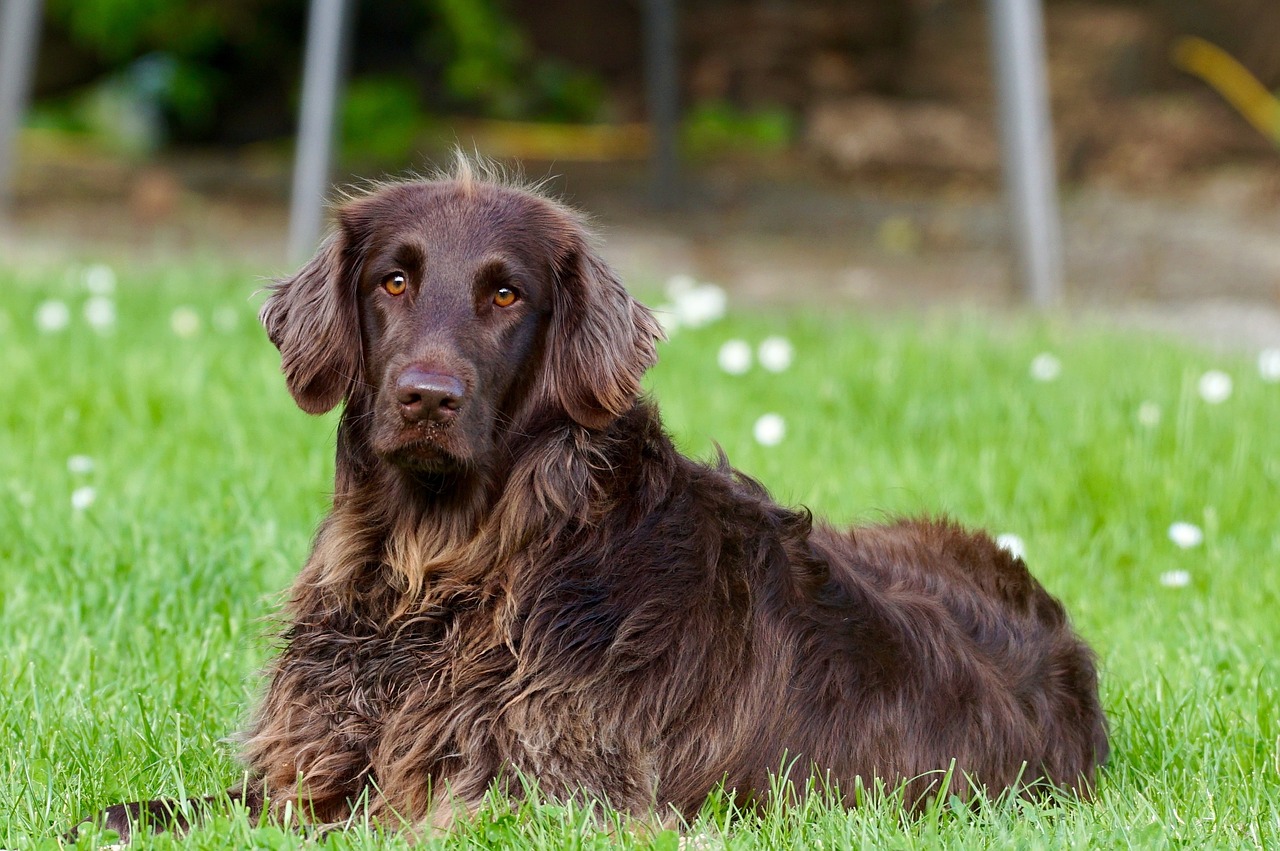
Natural Remedies and Supplements
When it comes to managing anxiety in senior dogs, many pet owners are turning to natural remedies and supplements as effective alternatives or complements to traditional treatments. These options can provide a sense of calm and relaxation, helping our furry friends feel more at ease in their golden years. But what exactly can you offer your anxious pup? Let's dive into some popular options that could make a world of difference.
One of the most commonly used natural remedies is herbal supplements. Ingredients like chamomile, valerian root, and passionflower have been known for their calming properties. For instance, chamomile can help soothe an upset stomach often associated with anxiety, while valerian root acts as a natural sedative. It's important to consult with your veterinarian before introducing any new herbs, as they can interact with medications your dog may already be taking.
Another option to consider is calming pheromones. These synthetic versions of the natural pheromones produced by nursing mother dogs can help create a sense of security for your senior dog. They are available in various forms, including collars, sprays, and d diffuser systems. Many dog owners report a noticeable reduction in anxiety-related behaviors when using these products, making them a popular choice for anxious pups.
In addition to these remedies, omega-3 fatty acids are gaining attention for their potential benefits in promoting overall brain health and reducing anxiety. Found in fish oil and certain plant oils, omega-3s can help support your dog's cognitive function, which may be particularly beneficial for older dogs who are dealing with anxiety as well as age-related cognitive decline. Again, it's wise to consult with your vet to determine the right dosage and form for your dog.
Moreover, some pet owners have found success with CBD oil. Derived from hemp, CBD oil has been touted for its calming effects and ability to alleviate anxiety without the psychoactive effects of THC. While research is still ongoing, many anecdotal reports suggest that CBD can help reduce anxiety and improve the overall quality of life for senior dogs. Always choose high-quality products and discuss with your veterinarian to ensure safety and efficacy.
For those interested in a more holistic approach, consider incorporating aromatherapy into your dog's routine. Certain essential oils, such as lavender and bergamot, are known for their calming properties. You can use a diffuser in your home or apply diluted oils to your dog's bedding to create a serene environment. However, it’s crucial to ensure that any essential oils used are safe for dogs, as some can be toxic. Always do your research and consult with a professional before use.
As you explore these natural remedies and supplements, remember that each dog is unique, and what works for one may not work for another. It’s essential to monitor your dog's response to any new treatment. Keeping a journal of your dog's behavior and anxiety levels can help you track progress and determine the most effective solutions. In the end, the goal is to create a harmonious environment where your senior dog can thrive.
- Are natural remedies safe for all dogs? - While many natural remedies are safe, it's crucial to consult with your veterinarian, especially if your dog has pre-existing health conditions or is on medication.
- How long does it take for natural remedies to work? - The time frame can vary depending on the remedy and the individual dog. Some may experience immediate relief, while others may take several weeks.
- Can I use natural remedies alongside prescription medications? - Always check with your veterinarian before combining treatments to avoid potential interactions.
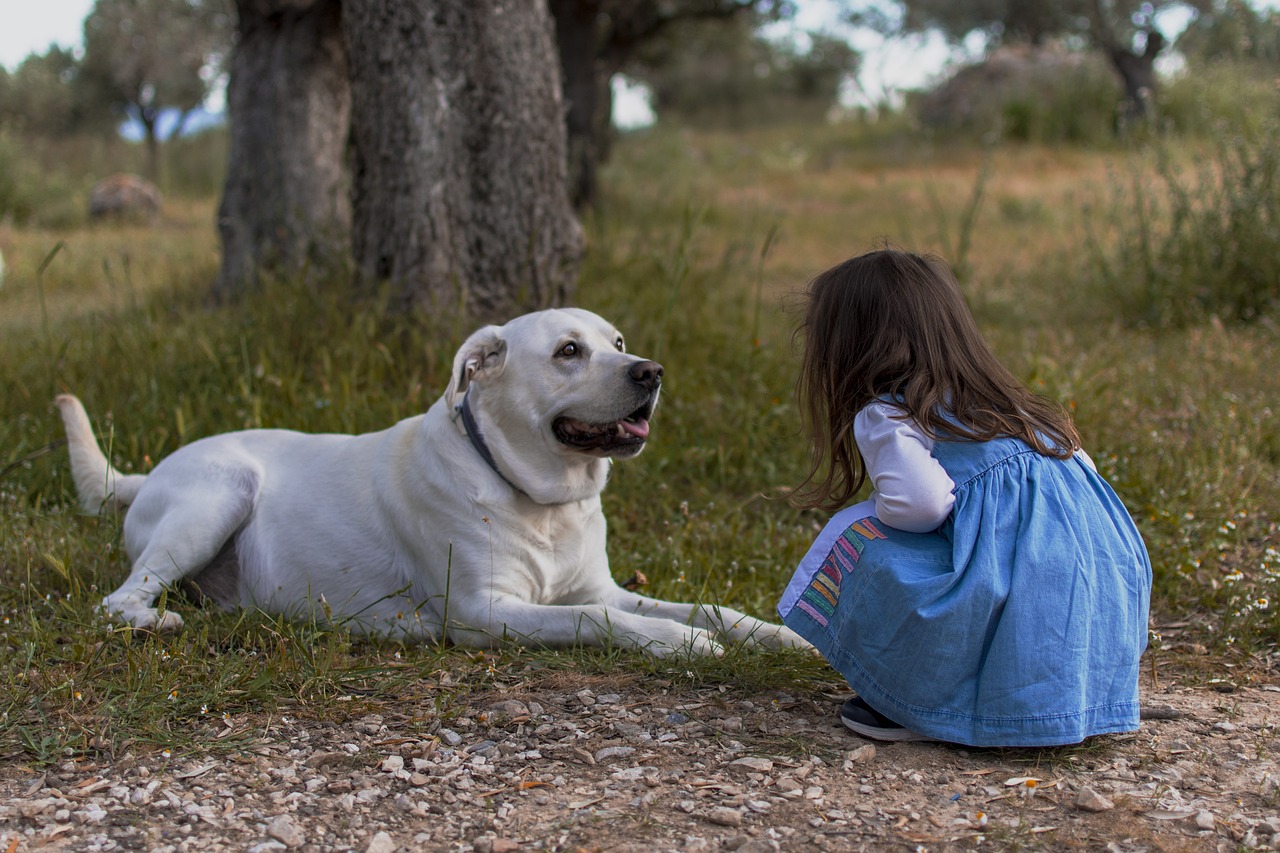
Professional Help and Training
Sometimes, despite our best efforts, the anxiety in our senior dogs can feel overwhelming. This is where professional help and training come into play. Just like humans, dogs can benefit from expert guidance when navigating their emotional challenges. But how do you know when it's time to seek this help? If your furry friend is exhibiting signs of distress that persist despite your interventions, or if their anxiety is leading to destructive behaviors, it’s a good idea to consult a professional.
Veterinarians are often the first point of contact. They can assess your dog's overall health and determine if there are underlying medical issues contributing to their anxiety. It’s essential to rule out any physical ailments, as pain or discomfort can exacerbate anxiety levels. Additionally, veterinarians can prescribe medications that may help alleviate anxiety symptoms, especially in severe cases.
Once health concerns are addressed, you might consider working with a certified dog trainer or a canine behaviorist. These professionals specialize in understanding dog behavior and can tailor a training program that suits your dog's specific needs. They often employ techniques like positive reinforcement, which can help your senior dog feel more secure and less anxious. Training sessions can also provide a structured environment that encourages your dog to learn coping mechanisms for their anxiety.
Here are some key points to consider when seeking professional help:
- Experience: Look for professionals with experience in dealing with senior dogs and anxiety-related issues.
- Methods: Ensure they use humane, positive reinforcement methods rather than harsh training techniques.
- Communication: A good trainer will communicate openly with you about your dog’s progress and involve you in the training process.
During the training process, be prepared for some ups and downs. Anxiety in dogs is not something that gets resolved overnight; it often requires patience and consistent effort. You might find it helpful to keep a journal documenting your dog's behavior, noting any changes, improvements, or setbacks. This can provide valuable insights for both you and the professionals you’re working with.
In summary, seeking professional help is a proactive step in managing your senior dog’s anxiety. With the right support, you can create a tailored approach that not only addresses their anxiety but also enhances their overall quality of life. Remember, you’re not alone in this journey; there are experts ready to help guide you and your furry friend through these challenging times.
Q: How do I know if my dog needs professional help for anxiety?
A: If your dog exhibits persistent signs of anxiety despite your interventions, or if their behavior becomes destructive or harmful, it may be time to seek professional assistance.
Q: What types of professionals can help with my dog's anxiety?
A: You can consult veterinarians for medical assessments and medications, as well as certified dog trainers or canine behaviorists for behavior modification techniques.
Q: How long does it take to see improvements in my dog's anxiety?
A: Improvements can vary widely depending on the individual dog and the severity of their anxiety. It often requires consistent training and patience.
Q: Are there any risks associated with using medication for my dog's anxiety?
A: While medications can be effective, they should always be prescribed and monitored by a veterinarian to ensure safety and effectiveness.
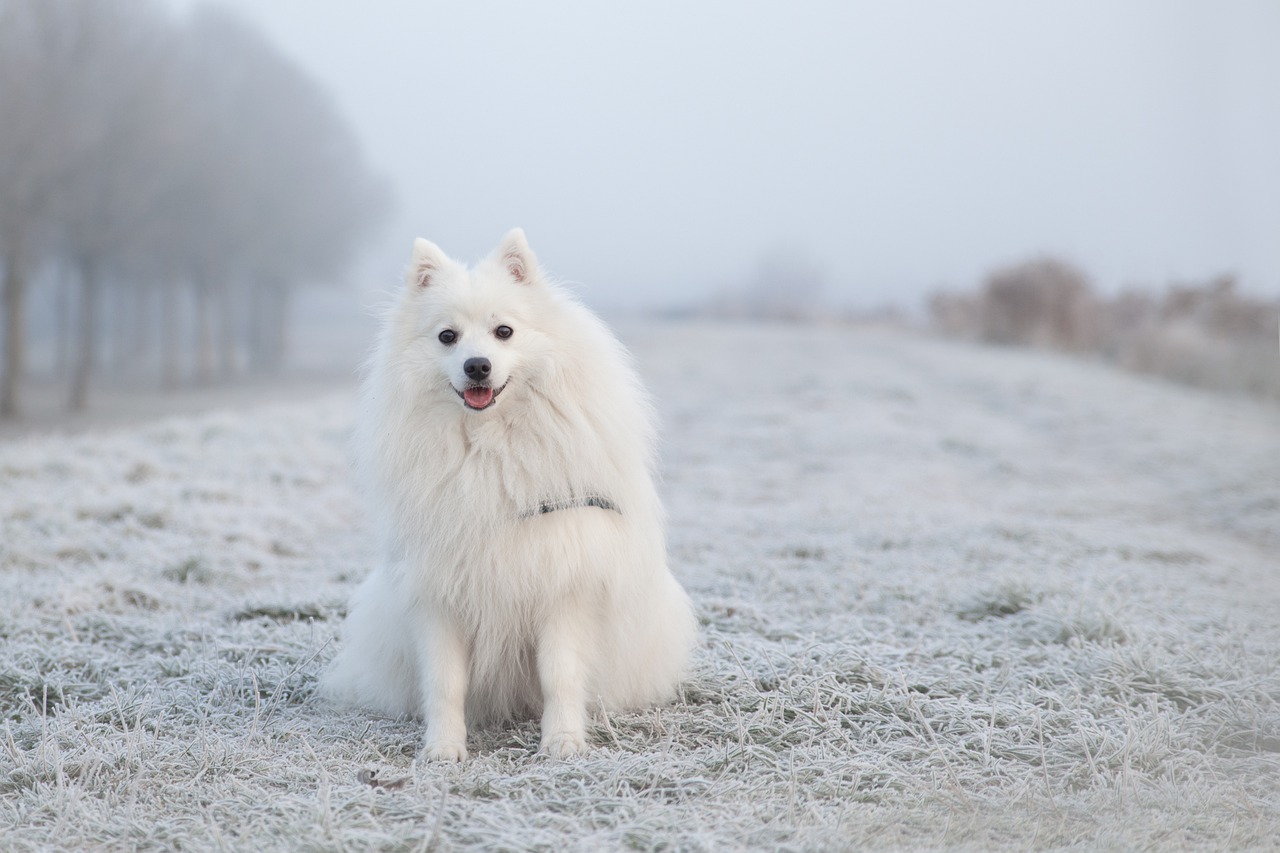
Monitoring Progress and Adjustments
Monitoring your senior dog's anxiety levels is not just a good idea; it’s essential for their well-being. Think of it like tuning a musical instrument; if you don’t check the strings regularly, the music won’t sound right! Similarly, keeping an eye on your furry friend's behavior can help you identify what’s working and what needs tweaking. So, how do you go about this? First, keep a journal or log where you can note down any changes in your dog's behavior over time. This will help you pinpoint patterns and triggers, making it easier to adjust your approach.
When observing your dog, look for specific signs that indicate how they’re feeling. Are they more relaxed during certain times of the day? Do they respond better to specific calming techniques? Documenting these observations can provide invaluable insights. For instance, some dogs may react positively to certain music or scents, while others might find comfort in specific toys or blankets. By keeping track of these details, you can tailor your anxiety management strategies to fit your dog's unique needs.
In addition to your observations, consider implementing a systematic approach to evaluate your dog's progress. You might want to create a simple table like the one below to track various aspects of their anxiety:
| Date | Behavior Observed | Intervention Used | Effectiveness (1-5) |
|---|---|---|---|
| 01/01/2023 | Excessive barking | Calming music | 4 |
| 01/08/2023 | Restlessness | Comfort blanket | 5 |
As you gather this data, you’ll start to see trends emerge. Perhaps your dog becomes more anxious during thunderstorms, or maybe they show signs of distress when left alone for extended periods. Knowing these triggers allows you to make informed adjustments to their environment or routine. For example, you might try to schedule walks or playtime before a storm to help expend their energy and reduce anxiety.
Also, remember that adjustments don’t always have to be drastic. Sometimes, small changes can make a significant difference. If you notice that a particular calming technique is only moderately effective, consider tweaking it slightly. Maybe adding a few drops of lavender oil to their bedding or changing the time you play soothing music can enhance the effect. It’s all about experimenting until you find the right combination that works for your beloved companion.
Finally, don’t hesitate to consult with your veterinarian or a professional dog trainer if you feel like you’re hitting a wall. They can provide guidance and additional strategies tailored to your dog's specific situation. After all, two heads are often better than one! It’s crucial to stay proactive and adaptable in your approach, ensuring your senior dog feels as comfortable and secure as possible.
- What are some common signs of anxiety in senior dogs? Senior dogs may show signs of anxiety through excessive barking, pacing, panting, or hiding. Observing these behaviors can help you identify when your dog is feeling stressed.
- Can anxiety in senior dogs be treated naturally? Yes, natural remedies such as calming pheromones, herbal supplements, and creating a soothing environment can help alleviate anxiety in senior dogs.
- When should I consult a veterinarian about my dog's anxiety? If your dog's anxiety is severe or if you notice changes in their eating or sleeping habits, it's essential to consult a veterinarian for professional advice and potential treatment options.
Frequently Asked Questions
- What are the signs of anxiety in senior dogs?
Senior dogs may exhibit various signs of anxiety, including excessive barking, pacing, hiding, or destructive behavior. You might also notice changes in their eating habits or increased clinginess. If your furry friend seems unusually restless or fearful, it’s time to take a closer look at their behavior.
- What causes anxiety in older dogs?
Anxiety in senior dogs can arise from several factors. Common triggers include health issues such as arthritis or cognitive dysfunction, changes in their environment, or even loud noises like thunderstorms or fireworks. Understanding these triggers can help you support your dog better.
- How can anxiety affect my dog's health?
Untreated anxiety can lead to serious health problems in senior dogs. Chronic stress may result in digestive issues, weakened immune response, or even increased pain sensitivity. It's crucial to address anxiety promptly to maintain your dog's overall well-being.
- What behavioral modifications can help reduce anxiety?
Implementing behavioral modifications like desensitization and counter-conditioning can be quite effective. Gradually exposing your dog to their anxiety triggers in a controlled manner can help them build confidence and reduce their fearful responses over time.
- How can I create a calming environment for my dog?
Creating a safe space for your senior dog is essential. Use familiar items like their favorite blanket or toys, and consider adding calming sounds, such as soft music or white noise. A quiet, cozy corner can work wonders in making your dog feel secure.
- Are there natural remedies for canine anxiety?
Yes, there are several natural remedies that can help alleviate anxiety in senior dogs. Supplements like CBD oil, calming herbs, and pheromone diffusers are popular options. Always consult your veterinarian before starting any new treatment.
- When should I seek professional help for my dog's anxiety?
If your dog's anxiety seems severe or is affecting their quality of life, it may be time to seek professional help. Veterinarians or certified trainers can provide tailored strategies and treatments to help manage your dog's anxiety effectively.
- How can I monitor my dog's progress with anxiety management?
Monitoring your dog's anxiety levels involves being attentive to their behavior and noting any changes. Keep a journal of their reactions to different situations and adjust your approach as needed. Regular check-ins can help you assess what works best for your furry friend.

